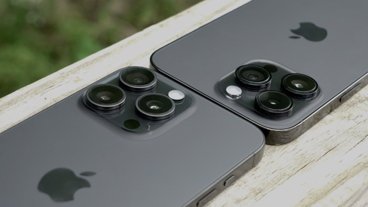As iPhone debut looms, Verizon says AT&T not known for reliable network
After an AT&T representative characterized Verizon's network as "slow," Verizon shot back, according to The New York Times. Verizon Wireless spokesman Jeffrey Nelson reportedly said that "it must be backwards day at AT&T."
"AT&T is known for a lot of things, but network quality is not one of them," he said. "Typically companies try to call attention to their strongest suit."
The comments came in response to a previous statement from AT&T, in which the carrier touted its faster network speeds than Verizon. An AT&T spokesperson said that Verizon iPhone users would experience "life in the slow lane" on the rival's network.
"The iPhone is built for speed, but that's not what you get with a CDMA iPhone," AT&T spokesman Larry Solomon said.
Verizon is set to host a media event today in New York City, where it is expected to announce it will carry the iPhone. AppleInsider will have full, live coverage of the announcement.
The last major public dispute between Verizon Wireless and AT&T came in 2009, when Verizon released a series of TV ads mocking AT&T's network. The campaign also lampooned Apple's "There's an app for that" tagline for the iPhone App Store, using the phrase "There's a map for that" to point out AT&T's inferior 3G coverage map in the U.S.
AT&T responded by filing a lawsuit against Verizon, and asking a federal court to pull the "misleading" television ads. Verizon's ads showed AT&T's coverage areas without high-speed 3G as a blank space on a map, which AT&T argued could be interpreted by people as meaning there was no coverage at all.
Though the lawsuit was eventually dropped, AT&T opted to directly take on Verizon with its own advertisements featuring Luke Wilson. The back-and-forth advertising battle lasted for months, but both companies eventually opted to move on and prevent further damage to their images.
 Katie Marsal
Katie Marsal










 Marko Zivkovic
Marko Zivkovic
 Amber Neely
Amber Neely
 Christine McKee
Christine McKee
 Malcolm Owen
Malcolm Owen
 Mike Wuerthele and Malcolm Owen
Mike Wuerthele and Malcolm Owen

 William Gallagher
William Gallagher








